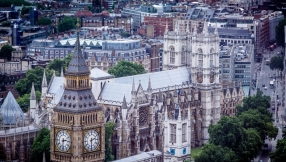Bush presses Saudi Arabia to help tame oil price
Bush said he would raise his concerns directly with King Abdullah, delivering a message that could put a chill on festivities planned later on Tuesday.
"OPEC should understand that if they can put more supply on the market it will be helpful," Bush told reporters when asked what the producer group could do to alleviate high oil prices.
"I will say to Abdullah that high energy prices can affect economic growth because it's painful for our consumers ... could cause the U.S. economy to slow down."
Bush's overnight stay at King Abdullah's Al Janadriyah ranch near Riyadh had been seen as a chance to set aside talk of Middle East peace, Iranian challenges and controversial arms deals that dominated the first day of his visit.
Bush has made clear he wants to deal with a subject that has emerged increasingly as an irritant in otherwise close relations between Washington and the Islamic kingdom, the most influential member of the OPEC, source of over a third of the world's oil.
OPEC has repeatedly said it is pumping enough crude to meet demand and blames speculation, a weak dollar and geopolitical tensions, such as fears of war with Iran, for record oil prices.
French President Nicolas Sarkozy, who is also touring the Gulf, said in Riyadh on Monday that oil should be closer to $70 per barrel (35.6 pounds) than the current level of around $100. He called on Saudi Arabia to use its influence to moderate prices.
When Bush walked arm-in-arm with King Abdullah at his Texas ranch nearly three years ago, oil cost $54 a barrel, a level the Saudi government acknowledged then was "clearly too high."
Many Americans are griping about their tax dollars helping to underwrite the defence of wealthy Gulf allies. Many Gulf Arabs, whose currencies are pegged to the dollar, blame its weakness for spiralling inflation.
Bush, whose country is the world's largest energy consumer, said he was still considering whether an economic stimulus package for a U.S. economy some economists say is tilting toward recession.
Bush reiterated his threat of serious consequences if Iranian vessels confront U.S. war ships in the Gulf following an incident on January 6. But he said he had told Gulf Arab leaders on a regional tour that he wanted to solve the standoff over Iran's nuclear programme "diplomatically."
"If they hit our ships, we will hold Iran responsible," Bush said. "They'd better be careful and not be provocative."
Trying to counter Iran's growing military clout in the region, Bush made clear on Monday his commitment to go ahead with a major arms sale to Saudi Arabia.
Bush also criticised Iran at the weekend. Iran denounced that criticism as "words without value" and said Bush was trying to "divert attention from his failed policies".













